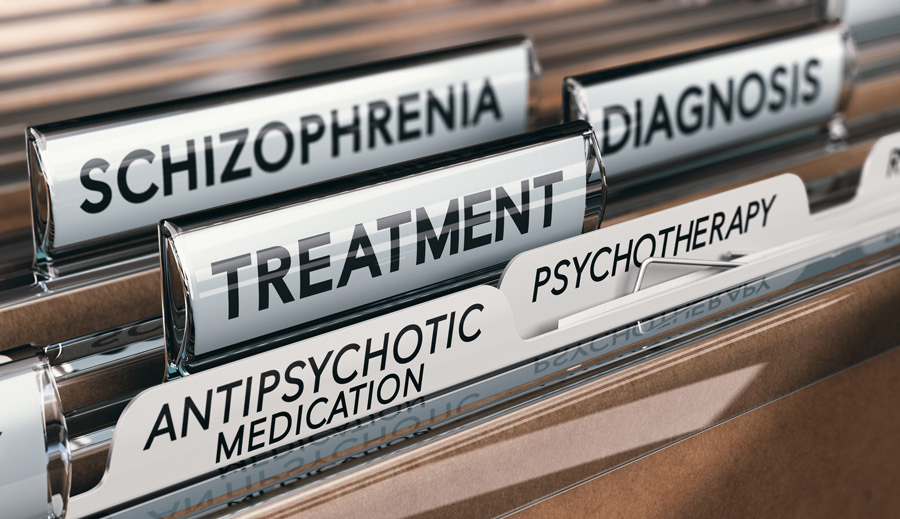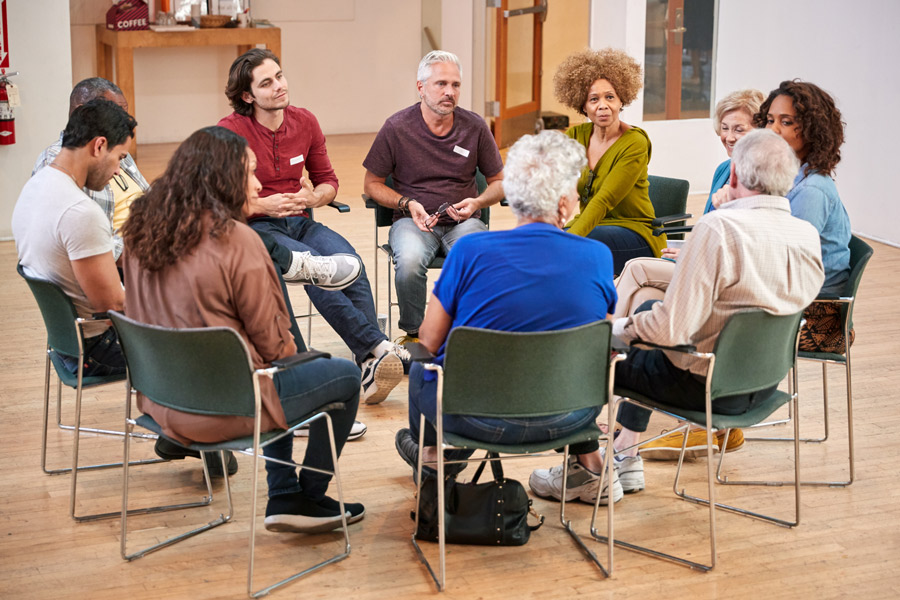Rethinking psychiatric medication: An interview with Will Hall
Influential mental-health advocate, therapist, and researcher Will Hall talks to us about his latest research on psychiatric drugs, carried out at Maastricht University in the Netherlands with fellow pioneers in the field. Drawing on his own clinical experience as a therapist and personal experience of the mental-health system, Hall’s research indicates that the current pharmaceutical approach to treating mental illnesses needs serious rethinking.
Through his wealth of experience as a therapist and mental-health educator, Will Hall is uniquely equipped to extol the virtues of a sensitive, compassionate, and recovery-based approach to treating mental illnesses. His highly influential guide to coming off psychiatric drugs has provided a lifeline to many, who felt that prescription drugs were becoming debilitating. Hall is the host of Madness Radio, and author of Outside Mental Health: Voices and Visions of Madness. We spoke about the vital importance of a diverse and sensitive approach to treatment.
Please tell our readers a little bit about yourself.
I’m a therapist and PhD candidate in psychiatric epidemiology at Maastricht University in the Netherlands, working with Dr Jim van Os, Dr John Read, and Dr Joanna Moncrieff on patient experiences with psychiatric medications. My interest in medical research came out of my work as a therapist where I primarily help individuals and their families with psychosis, bipolar, and schizophrenia diagnoses, as well as from many years of support group work and human rights advocacy.

I never expected to have a career in this field, but I was sort of drafted into it when I myself became a psychiatric patient and was diagnosed with schizophrenia. Not only did the treatments offered to me not work, but I feel I was harmed by what happened to me in locked wards and on medications. Making sense of all that meant discovering the patient survivor movement, the century-old political conflicts within psychiatry challenging dominant scientific narratives, pharmaceutical industry power, and the institutional violence and discrimination that has gone along with psychiatry since its beginnings in the asylum era.
Before Big Pharma started pushing the idea of chronic disease management, recovery from psychosis and schizophrenia was widely expected.
You’ve published a widely-used manual, Harm Reduction Guide to Coming Off Psychiatric Drugs. Do you think there is enough information available on psychiatric-drug withdrawal?
When I went to the system for help, I was given a wide variety of psychiatric drugs: antidepressants, lithium, benzodiazepines, and antipsychotics. But not only was there no information given to me about when to know when to come off these drugs, or how – I wasn’t even given basic, accurate information about what is known and not known about how they worked. It was never explained to me that antipsychotics, for example, are basically tranquillisers that will sedate anyone you give them to, whether they experience psychosis or not – these drugs are actually also used in veterinary medicine, zoos, and wildlife management to tranquillise animals.
I was also never told that throughout history many people with my same diagnosis of psychosis had used psychotherapy, not drugs, to recover. Or that, before Big Pharma started pushing the idea of chronic-disease management, recovery from psychosis and schizophrenia was widely expected for many patients. I started to seek out information myself and try to figure out what was going on because there was all this pressure to just turn off my critical mind and accept unquestioningly the treatment recommendations from doctors – even though I knew from trial and error they didn’t work for me.

At first, I felt that psychosis and my mental and emotional states had to be put behind me, and I had to be some kind of fully ‘cured’ person before I could move on with my life. I started to tell myself that it was me, but when I tried to go back to school it all came crashing back because basically, I was in denial of myself. Then I started embracing myself as different, as someone who goes through extremes and has trauma and has sensitivities to take care of. I started to understand my psychotic experiences not as a broken brain or some kind of mental fever, but as being both negative and positive, having some value and even spiritual meaning. This wasn’t anything I ever heard from doctors or therapists.
So, I turned to other patients. We started some very small support groups in Massachusetts, and immediately the groups started to grow and grow. We sparked a big change in the area that has had an impact nationally in the US, and today that area is the strongest patient advocacy and leadership region of the country. When we did our groups, people came to us over and over again with basic questions about medications, including coming off. The doctors just weren’t giving them any help other than ‘just say no’ to psychosis and hospitals, so you ‘must be compliant’ with treatment and drugs. We wanted a more diverse and respectful set of options for people. Through our support groups, we developed a harm reduction approach to meet people where they are at. I think that’s why we were successful – we are not anti-meds, or pro-meds, but pro-choice; pro each person figuring out for themselves, with support, what they need and what works for them.

What are you currently researching?
I developed a 12-language international anonymous survey asking people their experiences of trying to come off antipsychotic drugs. You can take a look at the survey, and participate, here: www.antipsychoticwithdrawalsurvey.com. We’ve had more than 5,000 responses to date, from over 70 countries, with people responding ranging from 18 years old to in their 80s. We are gathering data about who people are, how they tried to come off, what happened to them when they did, and what the outcome was, as well as the lessons they learned.
I’ve worked with the international Hearing Voices Movement for many years, and am co-founder of the US network. Through this work, I teamed up with another schizophrenia-diagnosis survivor who has come off medications and is also a support group facilitator, Rachel Flanigan. Rachel not only has hundreds of hours of experience discussing medications, voices, psychosis, and recovery in support groups but is also a PhD candidate in economics specialising in statistical analysis. Her high-level math and economics expertise is allowing us to do an in-depth factor analysis of the survey data. We sorted respondents into three groups: off all medications, off antipsychotics but taking other medications, and still on antipsychotics. We defined ‘being off’ as having not taken antipsychotics for more than a year, and limited the study to only those with the most severe experiences, people who have a psychosis diagnosis.

What have you discovered so far?
Thanks to the contributions of all the people around the world who have taken the survey, we’ve compared all these groups to develop a robust statistical picture of what goes into successful antipsychotic-drug withdrawal. Surveys always have limitations, and the results are still pending publication, but the picture we are seeing is first and foremost that a wide diversity of people are able to come off psychiatric medications. There doesn’t seem to be any way to confidently predict who can and can’t succeed – which means that people who want to try should be given a chance. Nobody can point to research and say: ‘sorry, you fit the profile here of people who can’t come off their medications.’ We are seeing people who have been on medication for decades who successfully stopped, and people who’ve been on them short-term having a hard time coming off.
The picture we are seeing is first and foremost that a wide diversity of people are able to come off psychiatric medications.
It appears that no matter how difficult your experience has been, or how bad the withdrawal effects are, those aren’t the key factors to success. It looks like the more important factors are: how much support you have, how much preparation you do, how much flexibility you have in dosage and withdrawal method, how much information about withdrawal and diverse ways of understanding psychosis you have, and how many different ways you learn to cope with your experience. Those seem to be the general trends – what that looks like from person to person can be widely different. One person stops all drugs and alcohol and goes to a 12-step group, one person joins a gym, one person gets individual therapy, and one person joins a support group…there seem to be many different paths. But the general underlying factors seem to be support, preparation, flexibility, diverse understandings, and coping tools.

What do you hope will be the impact of your research?
We have to do two things. First, we have to recognise that psychiatric patients are human beings and have the right to a say in their treatment. Antipsychotics are hard drugs to describe to someone who has never been on them. Some people really appreciate the calm they can offer. Other people are absolutely devastated, experiencing something like a chemical lobotomy. It’s not just ‘finding the right dose’ or doing a ‘meds adjustment’. Some people just want to try to sort out their problems without meds. That’s their choice and right – and the research supports that not only is this possible for some people, but that some people will actually do better off medication. That was my experience – there is no doubt in my mind that if I had stayed on antipsychotics, I wouldn’t have the clarity or mental capacity or health to be working on a PhD.
Secondly, we need a mental-health service that says to people: ‘do you want to try these meds or do you want to try something else? We will support you either way.’ And when people want to try coming off medications, we don’t punish them or see them as uncooperative but understand they are just human beings trying to figure out how to deal with overwhelming suffering. We should give them a range of support, options, and information to be a helpful part of their process of coming off or deciding medications are best for them. That process can take a long time, and health providers need to have the knowledge and skills to meet people and work with them. Right now, too often it’s meds or nothing, and if you don’t like your meds, they recommend more meds. For some of us, the cost-benefit analysis is clear – we want to try to come off our meds, not start meds to begin with, and find other ways of coping. We should be supported in that decision.
Do you think conceptions and treatment of mental-health illnesses will change in the future?
It is inevitable that people who are thriving being off medications will get more and more visibility, and the harms that so many people have endured – solitary confinement, forced treatment, violence on hospital wards – will get more and more awareness. The nature of the internet means there are growing challenges to Big Pharma and the paternalism of doctors. It’s getting clearer that healthcare is a right, and a for-profit system creates terrible incentive structures: companies make money off disease management and selling pills, not real solutions. If you talk with people who are suffering mental-health conditions, you discover the root causes are so often trauma, social isolation, the crushing weight of poverty and economic pressure, community breakdown, consumerism, and a sense of hopelessness in a world that is literally on a collision course with ecological collapse. I have faith in common sense and the human heart to join us together to start making some real changes, for the sake of everyone’s mental health.
